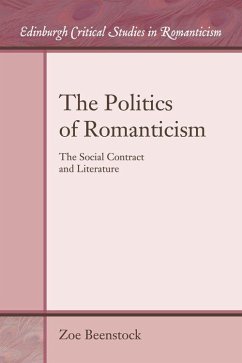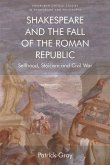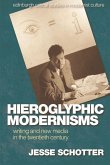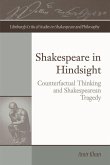'The Politics of Romanticism makes a compelling case for the significance of social contract theory as a tradition of philosophical and political thought, and is likely to become an important reference point for scholars of key Romantic writers.' Catherine Packham, University of Sussex Redefines Romantic sociability through a reading of social contract theory The Politics of Romanticism examines the relationship between two major traditions which have not been considered in conjunction: British Romanticism and social contract philosophy. She argues that an emerging political vocabulary was translated into a literary vocabulary in social contract theory, which shaped the literature of Romantic Britain, as well as German Idealism, the philosophical tradition through which Romanticism is more usually understood. Beenstock locates the Romantic movement's coherence in contract theory's definitive dilemma: the critical disruption of the individual and the social collective. By looking at the intersection of the social contract, Scottish Enlightenment philosophy, and canonical works of Romanticism and its political culture, her book provides an alternative to the model of retreat which has dominated accounts of Romanticism of the last century. Key Features - Develops a new understanding of the politics of the Romantic movement - Offers fresh readings of canonical works by Coleridge, Wordsworth, Godwin, Mary Shelley and Carlyle by tracing their implicit dialogue with the political philosophy of Rousseau and other Enlightenment political theorists - Shows that the philosophical roots of Romanticism and its ties to German Idealism originate in empiricism - Carries important consequences for the contemporary understanding of the self, an understanding that is partly rooted in notions that originated with the Romantics Zoe Beenstock is a lecturer at the Department of English Language and Literature at the University of Haifa. Cover design: Stuart Dalziel [EUP logo] edinburghuniversitypress.com [please note new web address] ISBN 978-1-4744-0103-6








